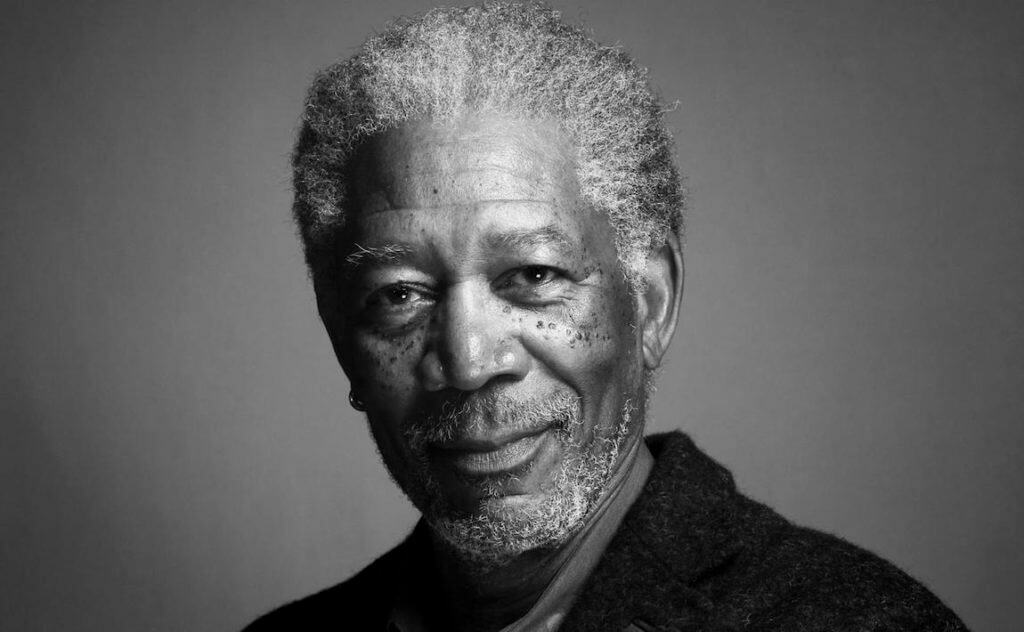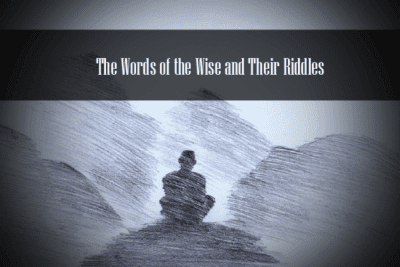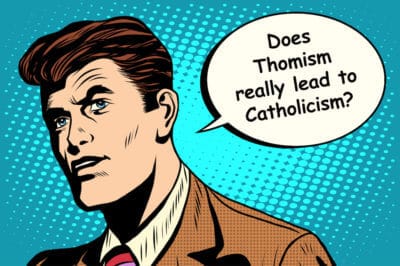Has anyone ever asked you “Who is God?” What a loaded question! The answer to this question is undoubtedly important and is intimately connected to every aspect of life; one’s belief or lack thereof will determine how one approaches foundational questions pertaining to the nature of reality, man, knowledge, meaning, morality, and purpose. I can’t think of an issue that is more all-encompassing than the question of God. However, as important as the question “Who is God?” is, before we can answer it we must first ask the question “Does God exist?” If we don’t deal with the question of God’s existence, then there is no God to know about in the first place. Asking “Who is God?” presupposes that he exists. If we can know that God exists, then we can begin to delimit Who he is—i.e. whether he is the God or gods of Christianity, Islam, Buddhism, Hinduism, etc.
If you’ve seen the recent National Geographic series “The Story of God” with Morgan Freeman, then you’ll notice that this is a much different approach than the one taken up by the series. In the episode “Who is God,” Freeman attempts to find a “universal concept of God” by surveying the diversity of religious experience around the world— “religious experience” being defined so loosely as to include even the feeling one gets when listening to good music. Let us briefly critique Freeman’s method before moving on to the question “Does God exist?”

Rather than engaging the various scholars, theologians, and philosophers who have devoted their lives to the question of God, Freeman seems to think that by interviewing a few local practitioners of different religions that he can smash their various notions of God together to come up with a unified concept. Besides some historical inaccuracies presented in the episode, or the blatant mischaracterization of Jews, Christians, and Muslims, or the embarrassing scientific and philosophical ignorance displayed by the attempt to measure[1] God, it seems that Freeman starts with some very suspect assumptions. Can surveying religious expression really tell us anything about God? The answer is no for the simple reason that across the spectrum religions have contradictory notions of God (or gods). The contradictions are compounded when one starts treating every individual claim of religiosity as universally valid. At best the universality of religious expression tells us something about man—that there is something seemingly spiritual about him such that he restlessly pursues meaning or purpose in a single thing, person, or cause. It would be a serious overreach to conclude from this, however, that somehow all the various conceptions of God are true or equally valid.
Contrary to what Freeman implies in his method, not every religion or belief concerning God is equally agreeable to the truths of reality. Not all ideas have an equal stake on the truth. Not all ideas of God equally reflect the truth, and not all beliefs about God or gods can be true. For example, if monotheism is true, then pantheism, polytheism, and atheism are false. This is not intolerant or bigoted. It is simply a consequence of the unquestionable principle of contradiction:“A thing cannot be and not be at the same time and under the same aspect.”[2] Theism, which says that “God exists,” and atheism, which says “God does not exist,” cannot both be true. Just as one cannot be pregnant and not pregnant at the same time, or one cannot be a married bachelor, so God cannot both exist and not exist. He either exists, or he doesn’t. This is because all claims concerning reality (even religious claims and mere opinions) necessarily exclude their opposites. This is true for all people, in all places, at all times. The principle of contradiction is undeniable for in denying the principle one affirms it. What this means is that I cannot be a Christian and also believe that all other views concerning reality are true or equally valid because that would include the view that “Christianity is not true” (to say nothing of the many other contradictions that would ensue, e.g. Jesus can’t both be the Messiah and not be the Messiah, etc.). Even Universalists, who are accepting of all beliefs, cannot be accepting of all beliefs. This is because if one is to accept all beliefs, then one must accept the belief that “not all beliefs are true.” Let us be clear: it is impossible for one to rationally believe that all beliefs about God or ways to God are true.
So it seems that in one’s search for God if one were to adopt Freeman’s method, then he or she would come to conclusions that are ultimately contradictory and unlivable. It goes without saying then that Freeman’s method is wholly undesirable if one is concerned with truth. I wasn’t surprised when far from coming to the universal concept of God that he sought in the beginning, Freeman concluded the episode with the following:
“God is so many things to so many people––the warm light of the sun, the sound of sweet music, an inner voice that drives us forward, a friend. If you ask me who God is, I would say there is a bit of the divine in all of us. There’s God in you. There’s God in me. The God in me is who I really am at my core. The God in me is the best version of me. The God in me is who I strive to be–who I was meant to be.” ~ Morgan Freeman
It’s a good thing that we have more to go on than Freeman’s word or the diversity of religious experience. A survey of religious experience certainly shows us that there are many different ideas about God. But we also know that not all of these ideas or religious expressions and experiences can be true in terms of what they claim about God or reality. We know this because it is the natural result of the principle of contradiction. Okay, so how then can we know who God really is?

As I mentioned before, knowing who God is presupposes that he exists. How can we know whether God exists? There are many serious arguments or proofs for God’s existence. [3] Thomas Aquinas, the thirteenth century theologian and philosopher, argued that the existence of God could be rationally demonstrated by reasoning back from what is most obvious to us, the existence of things, to the existence of God. Aquinas gives five such arguments that have famously become known as the Five Ways. Though there are many other arguments for the existence of God apart from the Five Ways, we are only going to consider Aquinas’ argument from motion or change. However, before we launch into the argument, it is necessary to briefly cover some preliminaries concerning what Aquinas thought of motion.
Motion in the Aristotelian sense simply means what we mean today by the word change. An issue central to the investigations of ancient philosophers had to do with the nature of change. Unlike Heraclitus of Ephesus who held that all things are in a constant state of flux, or Parmenides of Elea who held that all change is illusory, Aquinas following Aristotle explains the phenomena of change as one contingent thing moving from potency to act. The notion of act and potency is fairly intuitive and straightforward. Simply put, “act” refers to the way that something actually exists, and “potency” refers to the way that something could potentially exist. Consider, for example, a chunk of marble. There are many ways that a chunk of marble may be said to exist. It may be actually hard, colored, polished or unpolished. This is the chunk of marble’s “act” or the way it actually exists. However, there are also ways in which the chunk of marble could exist or potentially exist; it has certain “potentials” or “potencies.” For example, the marble is potentially a statue of King David, a countertop, a tile floor, or if it is unpolished, it has a potential to be polished.

The chunk of marble, however, does not cause itself to become a statue or a tile floor. It can’t polish itself. Its potential to exist as a statue is only actualized by some already existing thing, such as a sculptor. The other existing thing as existing is “in act” or actual. In this situation we have something actual, the sculptor, actualizing a potency in the marble to exist as a statue. So change or motion, as Aquinas puts it,
“…[Change] is nothing else than the reduction of something from potentiality to actuality.” ~ Thomas Aquinas, I.2.3., Kindle.
If all of this seems pretty straightforward to you, it is because you recognize that something cannot come from nothing (the principle of causality). Nonbeing, which is nothing, cannot produce a change in anything. Therefore, all change must be produced by something that is already being (that is, something already existing, “in act” or “actual”). A less technical way of saying this is that every change has a cause.
If you accept the distinctions between act and potency, then, as Edward Feser writes, you are“on your way to seeing that there is and must be a God.”[5] This is because as soon as one grants the fact of change as a process of one thing actualizing a potency in another, then one must posit the existence of a First Changer or as Aquinas puts it, a “First Mover” that upholds the change in everything else. Aquinas’ gives a fuller explanation for the argument from motion in his Summa Contra Gentiles, though, we will summarize the version found in his Summa Theologica.
The argument can be summarized as follows:
- Whatever is changed is not changed of its own accord but is changed by another thing already in act (that is, another already existing thing).
- An infinite regress of things moving from potency to act is impossible.
- Therefore, the existence of a First Changer/Mover that is Pure Act necessarily follows.
Let’s unpack this a bit. Aquinas says that change is
“nothing else than the reduction of something from potentiality to actuality. But nothing can be reduced from potentiality to actuality, except by something in a state of actuality.”[6] ~ Thomas Aquinas, I. 2. 3., Kindle.
He uses the example of fire and wood. Imagine holding a flame to wood. The flame actualizes the potency for hotness in the wood and makes it actually hot:
“Thus that which is actually hot, as fire, makes wood, which is potentially hot, to be actually hot, and thereby moves and changes it.”[7] ~ Thomas Aquinas, I.2.3., Kindle.
The change in the wood during combustion is due to the fire. However, the fire is itself being changed. The fire is the result of a chemical reaction between oxygen and some kind of fuel that are constantly changing as the fire burns. So the change in the fire is due to the changes occurring in the chemical reaction, which further depends on the molecular structure of those various components involved, which further depends on other things having to do with atoms and particles and the like, which further depends on the four fundamental forces which further depends on something else. However, this series of things reducing from potency to act, which upholds the change in the wood, cannot continue down forever, for each member in the causal series receives its causal power from a previous member (not chronologically, but essentially). There in principle has to be a first member. Otherwise there would be no change in fact. Therefore, there must be a First Mover which upholds the movement or change in everything else.[8]

Many have and are bound to misunderstand Aquinas’ argument from motion (atheist Richard Dawkins, for example). Further, the argument is actually much more technical than how it is expressed here.[9] If you’re new to this type of thinking, Feser’s Aquinas or The Last Superstition would be a good start. For the most part, those two books are not overly technical and are perfect for the beginner.
You’re probably thinking that our result does not necessarily point to the God of Christianity. In part you’d be right. We have shown that a First Mover must exist, but have not yet investigated who this First Mover is. At this point, whatever else we mean by “God,” we at least mean that He is the First Mover. Contingent things, things that change, such as rocks, trees, and humans, are limited in their existence by the kinds of things they are. They are composed of actuality and potentiality–existing, but capable of existing in other ways. God, however, as the First Mover is by definition not moved (changed) by anything else. Thus, another name for the First Mover is the Unmoved Mover. What this essentially means is that God is purely actual having no potentiality for change in His Being. A shorter way of saying this is to say that God is Pure Act.
We could go on to show that not only does God exist and is Pure Act, but also that he is immaterial, without parts, immutable, eternal, perfect, good, omnipotent, omnipresent, omniscient, personal, one, and many other attributes held by the classical doctrine of God. We could also show that as a result, the exclusion of other views such as pantheism, atheism, and polytheism necessarily follow. In this way, by reasoning to the existence of God, we can begin to gain a glimpse of what God is. It goes beyond the purview of this post to discuss such things. However, the point of this demonstration is to show that Morgan Freeman’s method for discovering who or what God is is essentially flawed. We should not confine God to our religious experiences or individual preferences. The nature of God is something to be explored; however, just like any other type of exploration it requires the appropriate tools. Freeman shows that he lacks the knowledge and wisdom, and hence, the tools to answer the question “Who is God?” by his neglect to engage the great scholars, theologians, and philosophers of various religions who have spent their lives pursuing the knowledge of God. Further, he insults and depreciates his viewers by failing to consult those who would be considered experts on such a question.
End Notes
[1] Material means cannot be used to measure that which is not material (immaterial).
[2] Frederick D. Wilhelmsen, Man’s Knowledge of Reality: An Introduction to Thomistic Epistemology (Englewood Cliffs, NJ: Prentice-Hall Inc, 1956), 44.
[3] Philosopher Alvin Plantinga describes about two-dozen here. Renowned Christian philosopher and apologist, William Lane Craig, in this article, gives five arguments for the existence of God and explains three reasons why life is ultimately meaningless without God.
[4] St. Thomas Aquinas, Summa Theologica, trans. Fathers of the English Dominican Province (Claremont, CA: Coyote Canyon Press 2010), I.2.3., Kindle.
[5] Edward Feser, The Last Superstition: A Refutation of the New Atheism (South Bend, IN: Saint Augustine’s Press 2008), 54.
[6] Aquinas, I.2.3.
[7] Ibid.
[8] The progression here is adapted from that of Edward Feser in his The Last Superstition, 94.
[9] See the links above or for the full direct and indirect forms of the argument with commentary, see E.L. Mascall, He Who Is: A Study in Traditional Theism (London: Darton, Longman and Todd Ltd, 1966), 40-42.










